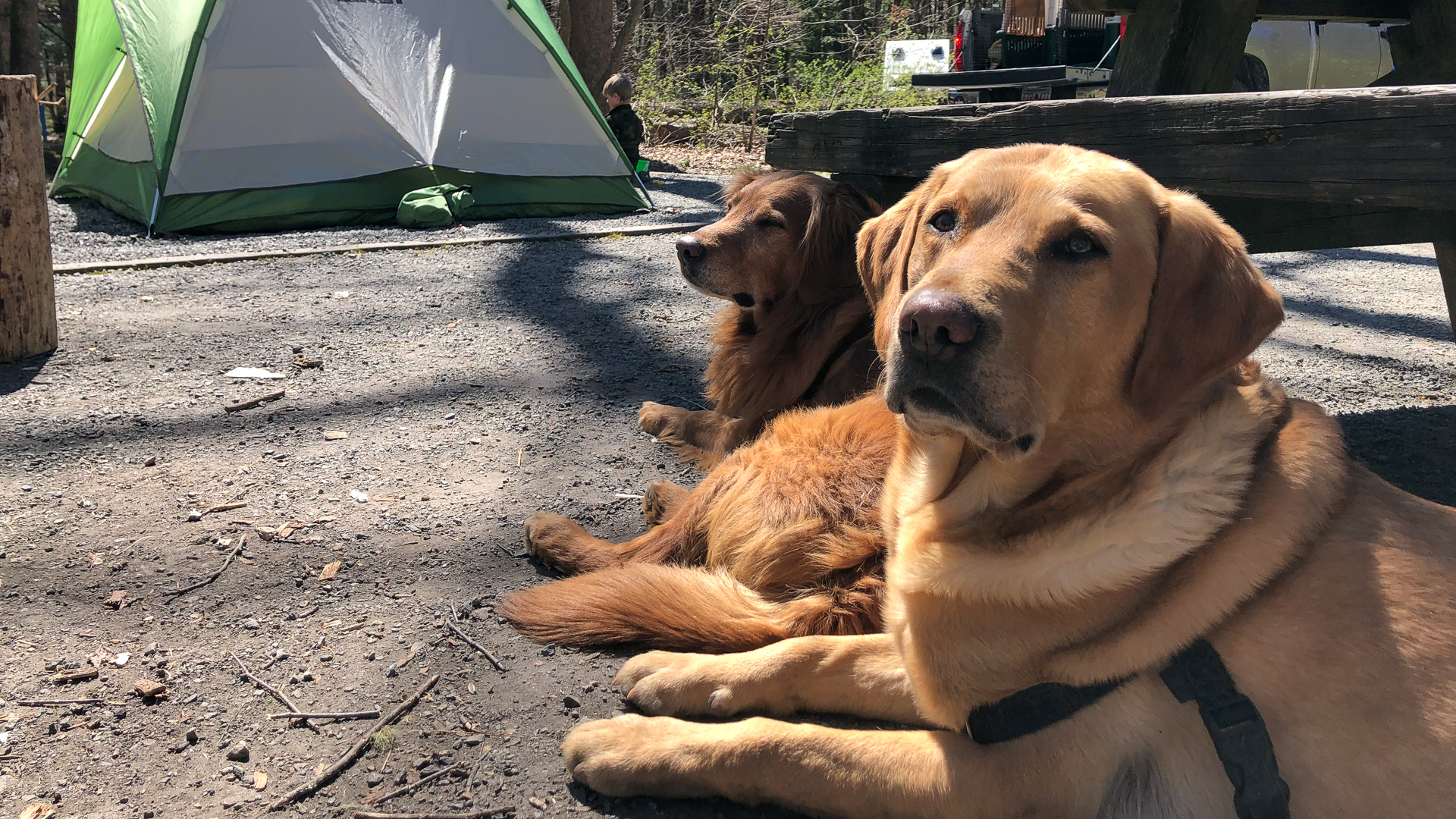
Camping is a great way to spend quality time in the outdoors with the whole family. If your family includes four-legged friends, a camping trip can be even more meaningful if your furballs come along.
Here are some tips to make sure you, and those camping around you, have an enjoyable outdoor excursion and not a canine catastrophe.

Choose A Pet-friendly Campsite
Campgrounds can have a wide range of rules when it comes to dogs. Dogs are normally allowed at most campgrounds, but most national parks do not allow dogs to be off the road once they leave a campground. National forests, state parks, state forests and private campgrounds all have different rules. Make sure to follow them so other families will be able to bring their dogs in the future.
Bring Dog Food
I know this sounds like a no-brainer, but in the rush of packing food for the family, tents, sleeping bags, coolers and camping chairs, dog food is easily forgotten. If you are lucky, you will remember before you are an hour away from the closest town.
Don’t Leave Dog Food Unattended
Campgrounds can be an all-you-can-eat buffet for birds, squirrels, mice, raccoons, skunks and even bears. All of these animals, except birds and squirrels, have no problem chowing down on an unattended food bowl. Some of these critters get quite brave around campgrounds, so it is best to not leave dog food unattended. Whenever you leave camp, make sure to secure the dog food in a vehicle or a bear-proof container.

Use A Leash
I have met many dogs while camping. Most of those dogs wandered over to my campsite from another campsite. I am a dog person, but as a dog person, I know that letting your dog run around an area with strangers and their dogs is a bad idea. We attach our dogs with leashes to a post or tree near where we congregate. Wherever we go, the dogs will go. Letting a dog run free in a campground is a good way to take an unplanned trip to the emergency vet.

Practice Fire Safety
Make sure that wood is the only thing burning in the fire. Many dog breeds have long fur and wagging tails. If your dog is new to campfires, it may not realize where its hind end is in relation to the flame. If you are petting your dog’s head and its tail is wagging over the flame, you will soon be greeted with the acrid smell of singed hair. Sleeping in a tent has enough challenges; add the smell of burnt hair to the list and it just sets you up for failure.

Plan The Sleeping Arrangements
When our family camps, we have two adults, two children and two 70-pound dogs sleeping in a four-man tent. We are at max capacity now that our children are growing. During the first night your dog sleeps in a tent with you, it may be a bit of a circus. The second night, however, the dog will end up going to the spot he slept in the night before and you will hardly notice him. Our dogs now curl up in the same spots, no matter where we camp. Help make a designated space with comfy blankets or dog sleeping bag.

Deflate Your Sleeping Pad
Dog’s nails and inflatable sleeping pads do not mix well. Unfortunately, I know this from experience. If you are lying on an inflatable sleeping pad, I suggest you open the valve. Having to refill the pad with air once is better than having to refill the pad multiple times throughout the night.




